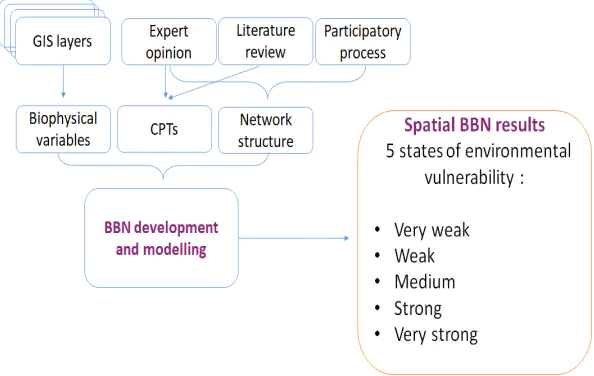Spatial Bayesian belief networks a a participatory approach for mapping environmental vulnerability at the Itatiaia National Park, Brazil
 Image credit: Elias
Image credit: Elias
Resumo
A Bayesian belief network (BBN) was implemented to assess environmental vulnerability in the Itatiaia National Park (INP). Information of soils, land use/cover, climate, relief and parent material was used to create the BBN, and the input nodes were those presumed as having a direct influence on the environmental vulnerability analysis. The literature review and a participatory approach were the basis to construct the structure of the network and to define the relations of dependence between the nodes through the conditional probability tables (CPTs). The most fragile areas were identified in soils with high organic carbon content, cation exchange capacity and fire susceptibility, low bulk density, low pH, poorly drained, profiles less developed, accentuated slopes, vegetation cover as altitude field and close to the trails or farms. Also, soils are formed from colluvial parent material. Despite the complexity of the study area, BBN was able to produce significant results. In addition to the BBN approach being less subjective than that conventionally used in vulnerability studies in Brazil, it was possible to obtain the propagation of the uncertainty associated with the prediction. The results will help decision makers to identify priority areas for intervention, reduce soil degradation in the highly vulnerable areas and help the INP managers in achieving a balance between nature conservation needs and recreational opportunity. Moreover, the BBN model may be updated as new knowledge or data are produced; and it can be used to support the process of the adaptive management plan.
Supplementary notes can be added here, including code, math, and images.